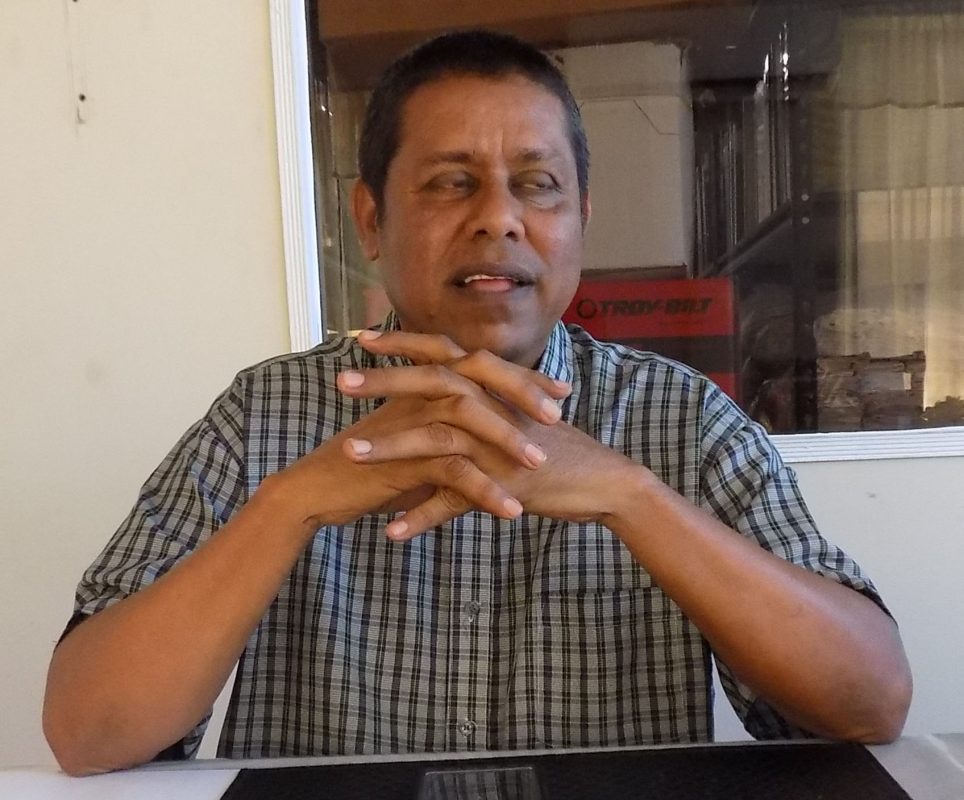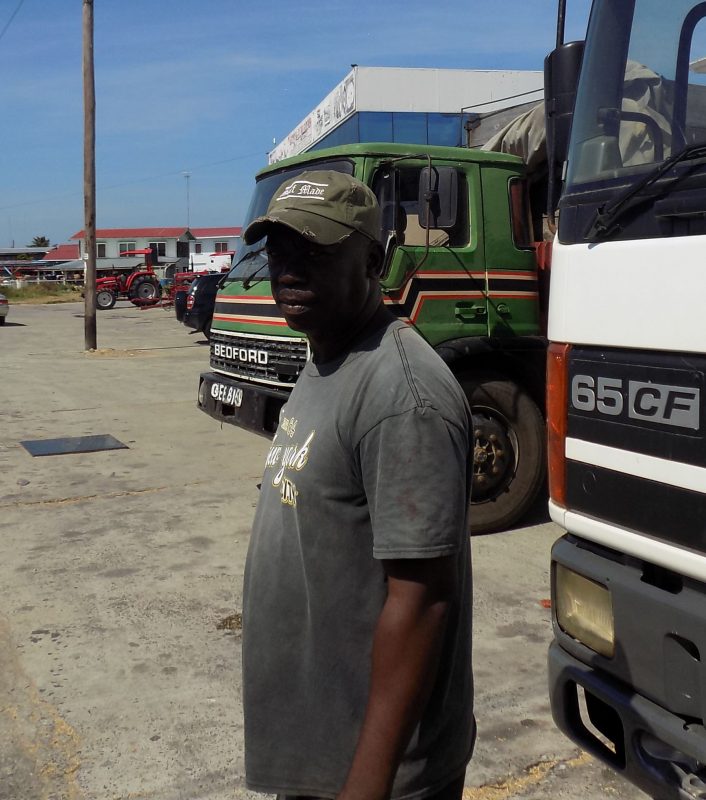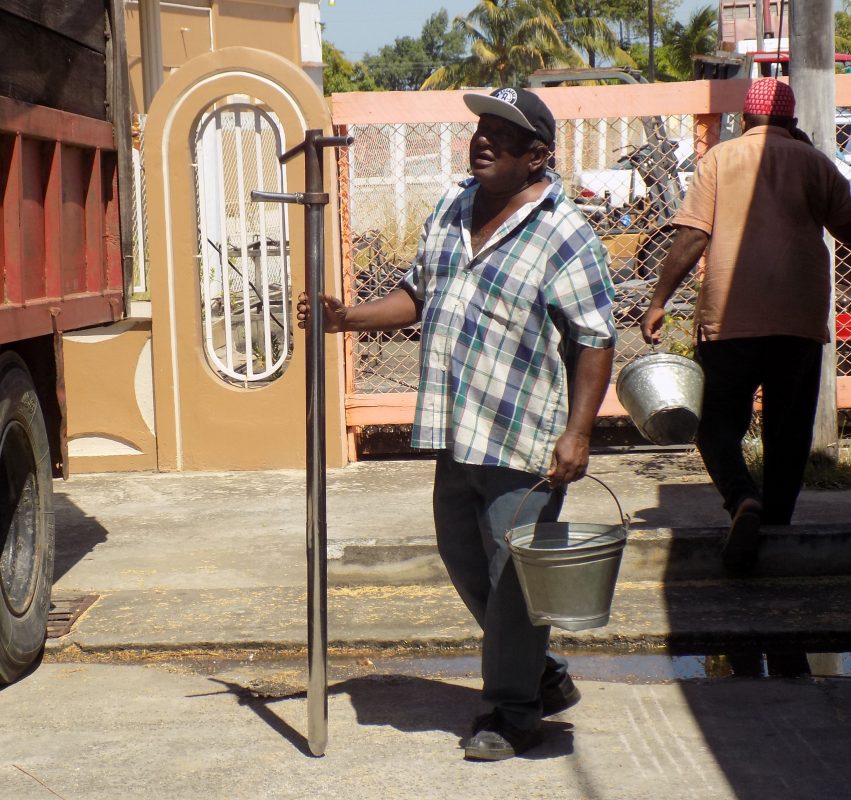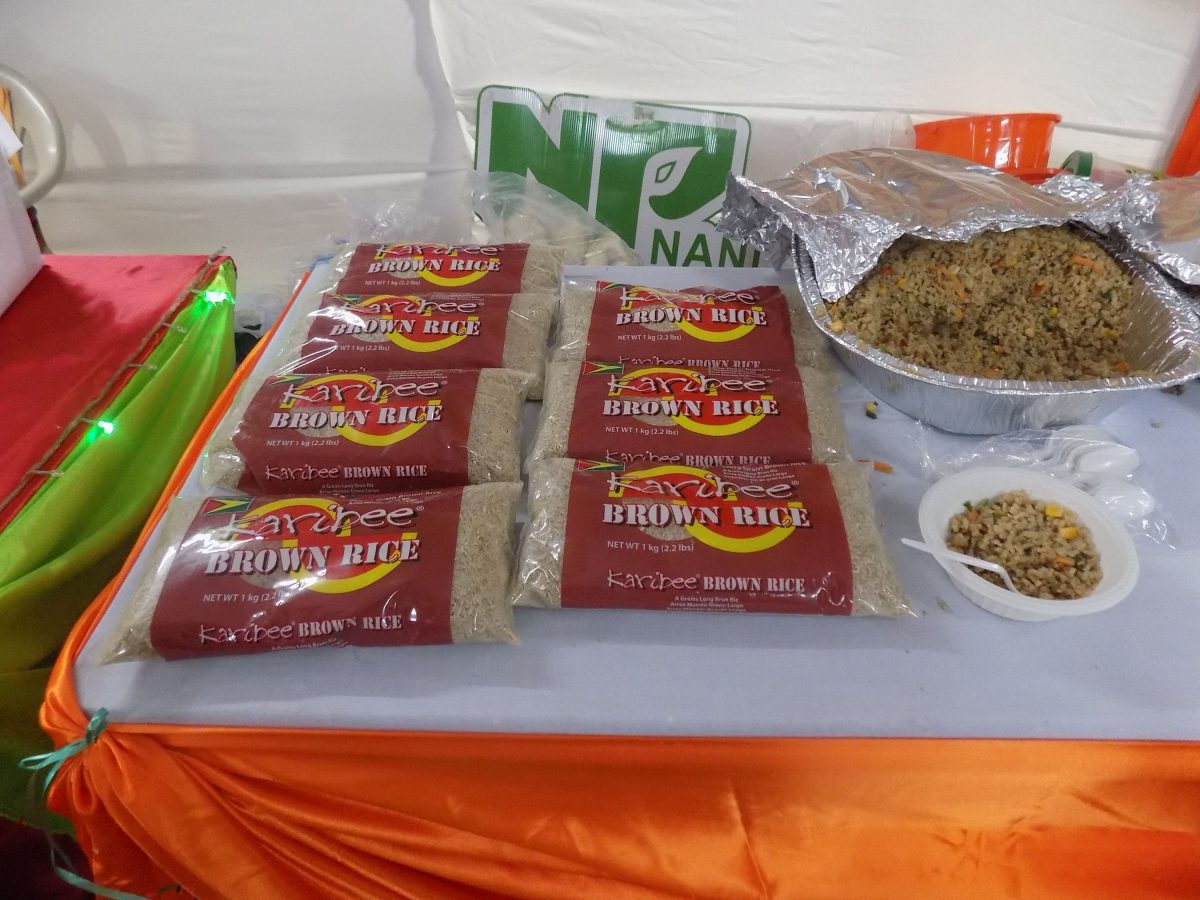The ongoing national discourse on the importance of ensuring that Guyana’s agricultural sector is not quickly washed away by the force of an oil-driven tsunami has bestowed a new significance on the country’s rice industry. Arguably, few people have a better understanding of the phenomenon than, Mahindra Persaud, the Chief Executive Officer of Nand Persaud and Company, the single largest privately-owned rice milling operation in Guyana. One of the most candid Guyanese businessmen in his assessment of what remains a critical economic sector, Persaud is under no illusions about the enormous significance of continually expanding rice production even as national attention shifts to a widely- anticipated oil economy.
Last weekend he spoke with Stabroek Business, as he customarily does, about a broad range of rice-related issues, not least those that have to do with the current constraints to the expansion of the sector.

When we visited the company’s operations, there were at least sixty trucks laden with paddy parked on the Number 36 Village public road in front of the company’s rice mill. They were awaiting the weighing and inspection process that precedes actual buying. The process can be slow but the farmers will wait – often up to a few days at a time. It is not every miller that hands over a cheque as soon as the unloading and weighing process is completed.
Once their engagement with the company is behind them the farmers can move directly to the business of paying their bills and focusing on preparations for the next crop.
Nurturing a convivial relationship with the farmers is critical to the realization of mutually satisfactory business arrangements. Not only does Mohindra engage the farmers during the buying process, he also visits the ‘backdam’ so that he can become familiar with the particular challenges that confront the farmers ‘on the ground.’ Insofar as challenges are concerned, the rice industry never offers a dull moment.
Persaud’s current focus is on the importance of applying a more generous measure of science to the rice industry. The startup of the new company-funded laboratory at the University of Guyana’s Tain Campus should help realize that. The company’s CEO is allowing two years for what he believes will be a change in the landscape of the sector. Among other things, Persaud is concerned about the excessive crop damage resulting from what, in many cases, is the misapplication of fertilizer. He believes that the work of the new laboratory will help alleviate that problem. His Company’s next preoccupation will be with the development of systems that will more readily provide access to information on crop diseases and remedies. Here, he says, the idea is to try to eradicate what, all too frequently, is the indiscriminate use of pesticides by the farmers. Work in the laboratory will focus on narrowing down both the nature of the ailment and the desired remedy.
Such a leap forward, Persaud says, should not be taken lightly. Several Corentyne farmers have lost their entire last crop on account of the paddy bug infestation. Others had to content themselves with far less returns than they had anticipated. Those setbacks can be substantial enough to take a great deal of time to recover from.

Ramlagan Singh, one of the farmers we met waiting to sell his paddy concurs. A failed crop can be a deeply distressing thing, he says.
Stanislaus Kyte, a Kildonan Village resident and a re-migrant from the United States was waiting to sell his paddy too. Disease had decimated his entire last crop leaving him about $4 million out of pocket. He had accumulated the resources for the current crop through loans and relatives had ‘chipped in.’ Kyte had already overnighted outside the Nand Persaud Mill waiting to sell his paddy. He was, he said, quite prepared to wait another night, if necessary, knowing that he would not be leaving without a cheque for his paddy.
Rice, Persaud told Stabroek Business, can be a sector of spectacular peaks and depressing troughs. “Once rice is doing well everyone gets a portion of the money – the hardware store, the grocery, the clothing store, the market and the rum shop.” To keep the sector going, he says, much of the returns must be ploughed back into the business. “A farmer may build a garage for a tractor, may purchase a combine or may even repair his house or invest in land.” It’s different in the sugar industry.”
If the rice industry is to deliver on national expectations in the years ahead, it is critical that more lands be brought under cultivation. In the Central Corentyne area the available rice lands are all but exhausted. Persaud says that currently there are 58,000 acres of rice lands under cultivation in Central Corentyne. He says that a further 17,000 acres of land in the Black Bush Polder area ought to have come under cultivation as long ago as the 1970’s under Phase 11 of the Black Bush Polder Rice Project. That never materialized. The first phase, covering 17, 300 acres of land is still “going strong,” he says. What is needed, though, is infrastructure, all weather roads, drainage and irrigation. Successive political administrations have not been sufficiently attentive to these deficiencies.
Nand Persaud and Company, its CEO says, has indicated its willingness to invest in creating the requisite infrastructure for expanding rice cultivation under a lease agreement. The company, he says, has not been granted state permission to do so.
Its own business interest in the welfare of rice farming keeps Nand Persaud & Company ‘on its toes.’ In order to persuade young persons to invest in farming the company provides loans and modest plots of land. And some agricultural equipment. Over the past two years, however, the project has slowed on account of a lack of available lands.
There are, however, Persaud says, some bright sparks in what remains a challenging industry. New varieties of paddy have come on stream. Black Bush Polder leads the nation in terms of rice productivity with 43 bags per acre. It is the availability of land, however, that remains the primary challenge. That has brought its own consequences, not least squatting. Some farmers have located to areas where there is no efficient drainage and irrigation, essentially planting at their own risk and imposing upon themselves further enormous challenges, not least a complete dependence on the vagaries of the weather.

Region Six and more particularly Central Corentyne, Persaud says, continues to be at the mercy of an unreliable water distribution and drainage and irrigation systems. He looks to central government for solutions, asserting that the choice of functionaries to oversee the rice sector may be part of the problem. He believes, for example, that if engineering initiatives can be undertaken to move water from the ‘backdam’ to the front lands, around 8,600 acres of additional lands can come under cultivation in the immediate term.
As a businessman, he says, he is frequently upset with bureaucracy. “You will hear things like water cannot be pumped because of the lack of a filter. That has to be discussed at a Board Meeting. That is then followed by a lengthy process to source the filter.” The solution, he says, is to keep critical spares in stock. His own company, is prepared to contribute to ensuring that those spares are on hand.
A lack of fresh water in the front lands has also affected cash crop farmers and persons keen to invest in rearing cattle and investing in fish. Nand Persaud & Company has itself been forced to abandon a fish pond which it had dug on account of a lack of water. A lover of horses he has to secure grass three time weekly from Molsen Creek. The prevailing water scarcity means that he cannot plant grass.
Persaud says that of the roughly 26 million tonnes of rice being traded on the international market, Guyana contributes about 400,000 tonnes. Markets have been a challenge but enduring optimist that he appears to be Persaud believes that “there will always be rice markets out there.” He believes that the process is about peaks and troughs. “You will enjoy good prices for a few years then down goes the price and you cannot compete because it is not profitable. You move to another market while keeping an eye on price movements on the one you left behind.” Against this backdrop Persaud is happy that the CARICOM market has been stable.






